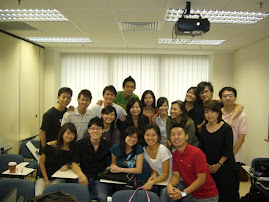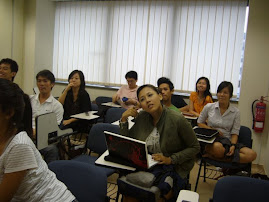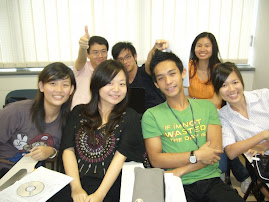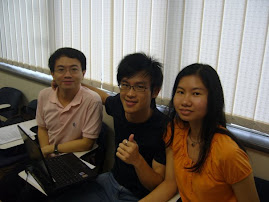


My HDB flat was undergoing lift upgrading and there were many Indian and Chinese labourers around. I was walking towards the lift when I saw the foreman, who was a Singaporean, briefing the workers at the lift landing. The Chinese labourers were nodding their heads at the foreman's instructions. To my surprise, I saw the Indian labourers shaking their heads as the foreman was talking. However, the foreman ignored the non-verbal cues that the Indians were sending and continued his briefing. As he finished speaking, he asked on a final note, "You understand?" to all the workers. The Chinese labourers nodded and walked off to get a wheelbarrow while all the Indian labourers shook their heads vigorously.
To my further chagrin, the Indian labourers subsequently took a spade and starting laying tiles. Unable to contain myself, I walked up and asked the foreman, "Excuse me sir, but how can you let them start work when they don't understand your instructions? Our lift may collapse!"
The foreman was startled and replied, "They know what to do. What do you mean?" I said, "But they were shaking their heads!" This time the foreman laughed, "Young lady, when an Indian shakes his head, it means he agrees with you. If he keeps quiet and has no head shaking motions, it means he does not understand you. If you actually see him nodding his head, you are in trouble. He is totally lost. So basically you must explain to him until he shakes his head at you. They are different from us Chinese."
I confirmed what the foremean had said with my father, who was the Department Head of Painting and Blasting at Drydock World. My father had always worked with large numbers of Indian labourers at the shipyard. He verified what the foreman had said, "Yup Indians shake their heads when they agree with you or to show that they are listening. They sway their heads for at least one circle, from the left to the right back to the left. If they are interested in what you are saying, they shake their heads even faster."
I was enlightened after that day!







